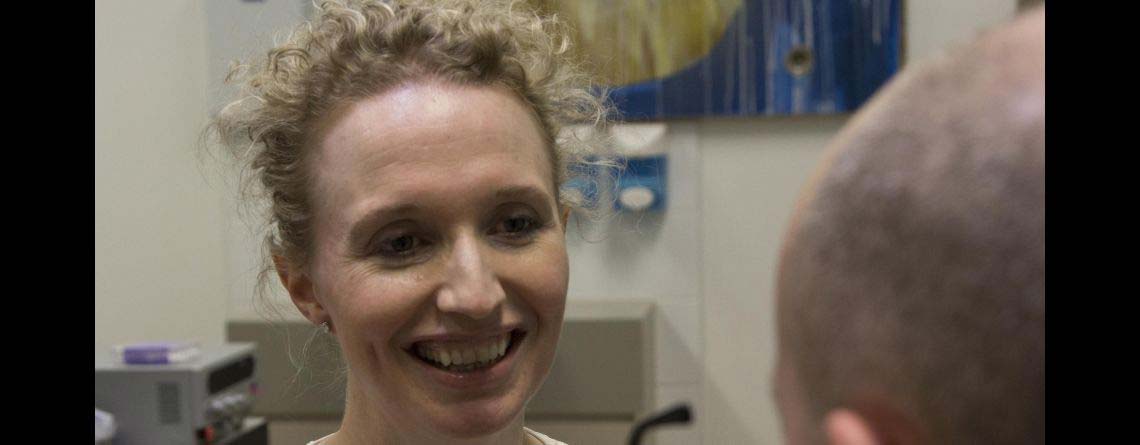The Main Principles Of Paediatric Ophthalmology
Table of ContentsThe 6-Minute Rule for Paediatric OphthalmologyThe 9-Second Trick For ConjunctivitisComprehensive Ophthalmology - TruthsConjunctivitis Can Be Fun For Anyone
Ophthalmologists are clinical doctors that specialize in the medical diagnosis and also treatment of eye and also vision troubles. What is the difference between an eye doctor as well as an eye doctor, after that? What concerning opticians? These three sorts of eye care experts have instead similar-sounding names and overlapping work summaries. It can be puzzling in the beginning look.They can not give eye tests, compose prescriptions, or detect or deal with eye problems. can examine your eyes, examination your vision, recommend glasses or contacts, as well as diagnose and also deal with several eye disorders and also diseases. They are not medical doctors or doctors but can recommend specific eye-related medicines (https://blog.valutek.com/home/glove-selection-the-5-cs). Offer eye tests, vision screening, and also prescriptions for glasses or get in touch with lenses.
:max_bytes(150000):strip_icc()/optometrist-vs-ophthalmologist-5094869_final-0d8eca1d944a4b54b1423065ac2e780f.jpg)
Ophthalmologists diagnose and also treat injuries, infections, diseases, and problems of the eye. Treatments can consist of medicine taken orally (by mouth) or topically (in the eye), surgical procedure, cryotherapy (freeze therapy), and radiation treatment (chemical therapy). Ophthalmologists go to medical college after that receive numerous years of specialty training in the clinical as well as medical care of the eye.
The Greatest Guide To Comprehensive Ophthalmology
As they are the only clinical experts that can deal with all eye conditions, eye doctors see a wide range of eye conditions, consisting of: Exactly how usually should you have an eye examination? What are signs and symptoms that show you may have an eye issue that needs to be examined by an optometrist? The American Academy of Ophthalmology recommends: As kids's eyes are growing and also changing quickly, they ought to receive a vision screening.
Grownups who have healthy eyes and also outstanding vision should have four comprehensive eye tests: one in their 20s, 2 in their 30s, and one at age 40. These examinations might allow the ophthalmologist to capture an eye disease or vision modifications at an early stage. By the time you observe signs, you might currently have some vision loss (ADULT & PAEDIATRIC EYE SURGERY).

People that go to a higher threat of eye disease might need to get an eye exam more frequently. This can consist of people with diabetes mellitus, hypertension, or a household background of eye troubles - ADULT & PAEDIATRIC EYE SURGERY. After age 65, your eyes need to be inspected every one to 2 years. No matter age, people who wear get in touches with should have a full eye examination every year.
Your view depends on seeing the best eye doctor at the correct time. When it's time to "obtain your eyes examined," make sure you are seeing the best eye treatment specialist for your needs. Ophthalmologists, eye doctors and also opticians each play a crucial role in supplying eye care to customers. But the degrees of training and also expertise are fairly various for each kind of company.
What Does Adult Cataract Do?

is a clinical or osteopathic medical professional who concentrates on eye and vision care. Ophthalmologists differ from optometrists as well as opticians in their degrees of training and also in what they can identify as well as treat (https://disqus.com/by/disqus_VZO4mxwIAT/about/). As a medical doctor that has completed university as well as at the very least eight years of added medical training, an eye doctor is certified to exercise medicine and surgery.
Many ophthalmologists are also entailed in clinical research study on the causes and remedies for eye diseases and also vision disorders. SUBSPECIALISTS: ADDED KNOWLEDGE AS WELL AS TRAINING FOR CERTAIN EYE NEEDS While ophthalmologists are educated to look after all eye issues and also conditions, some Eye M.D.s concentrate on a particular location of medical or medical eye treatment.
She or he typically finishes one or two years of extra, extra thorough training called a fellowship in one of the major subspecialty areas such as glaucoma, retina, cornea, pediatric medicines, neurology and also cosmetic surgery, in addition to others. This added training as well as expertise Extra resources prepares an ophthalmologist take care of even more facility or specific conditions in particular locations of the eye or in certain teams of patients.
An optometrist is not a clinical physician. An eye doctor receives a physician of optometry (OD) level after finishing 4 years of optometry school, preceded by three years or more years of university. They are certified to exercise optometry, which primarily includes doing eye tests and vision tests, recommending as well as giving rehabilitative lenses, detecting certain eye irregularities, as well as prescribing medicines for sure eye illness.
Some Ideas on Emergency Eye Problems You Need To Know
They use prescriptions supplied by eye doctors or eye doctors, yet do not evaluate vision or create prescriptions for visual modification. Lens are not allowed to diagnose or treat eye conditions. Most of us depend on our vision in more methods that we might recognize. Without healthy and balanced vision, our ability to work, play, drive and even identify a face can be significantly impacted.
That's why it is so crucial to see an eye doctor for a complete clinical eye examination by age 40, and then as often as recommended by your Eye M.D.
A full, clinical eye exam by an Eye M.D. might be the initial action toward saving your sight. Bulging of one or both eyes; Dark drape or shroud that obstructs your vision; Decreased vision, even if short-lived; Diabetic issues mellitus; Altered vision; Double vision; Excess tearing; Eyelid abnormalities; Household background of eye condition; Halos (tinted circles around lights); High blood stress; HIV or Help; Injury to the eye; Loss of outer (side) vision; Misaligned eyes; New floaters (black "strings" or specks in the vision) and/or flashes of light; Pain in the eye; Thyroid disease-related eye issues (Graves' illness); Uncommon red eye.